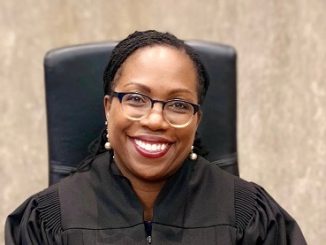
A US judge has quashed a Baltimore man’s murder conviction in a case that spawned hit true crime podcast Serial.
Adnan Syed was 19 when he was sentenced to life in prison for the death of his ex-girlfriend, Hae Min Lee, whose body was found buried in the woods in 1999.
Prosecutors last week asked the court to throw out his conviction, saying a year-long case review had turned up two “alternative suspects”.
Syed will be released into home detention.
Now 41, his shackles were taken off in court on Monday after nearly 23 years behind bars.
Baltimore Circuit Judge Melissa Phinn said she was vacating his conviction “in the interest of fairness and justice”, adding the state had failed to share evidence that could have helped his defence at trial.
The decision does not mean Syed is innocent. Judge Phinn has ordered a new trial.
A jury found Syed guilty in 2000 of premeditated murder, kidnapping, robbery and false imprisonment.
Prosecutors argued he was a scorned lover who strangled Lee, his classmate at Woodlawn High School, and – with the help of a friend – hid her body in Baltimore’s Leakin Park. They relied in part on mobile phone location data that has since been proven unreliable.
Every appeal Syed has filed over the past two decades has been denied, including his most recent attempt in 2019.
It was the 2014 podcast Serial that focused worldwide attention on the case and cast doubt on Syed’s guilt. Episodes of the show have been downloaded more than 340 million times. The case has also spawned other works, including an HBO docuseries in 2019.
The Baltimore State Attorney’s Office, which studied the case over the past year alongside Syed’s latest defence attorney, said on Wednesday that he “deserves a new trial”.
Prosecutors said they lacked “confidence in the integrity of the conviction” and had identified two new potential suspects who were known to police since the 1999 murder.
Neither suspect has been named, but officials said both had documented records of violence towards women, including convictions that occurred after Syed’s trial. One suspect was cleared from the investigation into Lee’s death after failing a lie-detector test, a method no longer admissible in many US courts.
“Our prosecutors have been sworn to not only aggressively advocate on behalf of victims of crime but when the evidence exists to exonerate those that have been falsely accused and convicted,” lead prosecutor Marilyn Mosby said outside the court.
She was interrupted by loud cheers as Syed exited the building through a scrum of cameras and supporters.
Before the ruling, the victim’s brother told the court through tears that he was “not against the investigation”, but had been blind-sided by prosecutors.
“Everyday when I think it’s over… or it’s ended, it always comes back. It’s killing me,” said Young Lee.
“This is not a podcast for me. This is real life – a never-ending nightmare for 20-plus years.”
Steve Kelly, a victim’s rights lawyer for the family, said the Lees had been “shut out of the legal process” and were “deeply disappointed” with the way they had been treated.
“All they wanted was information,” said Mr Kelly. “If the truth is that somebody else killed their daughter, they want to know that more than anyone.”
Serial Productions, which produced the podcast, has just released a new episode – the 13th – about the latest in the legal saga.
The series brought international attention to the murder of Hae Min Lee and was one of the first hit podcasts of the past decade’s boom in audio content.
It was followed by other shows which raised questions about existing murder convictions or drew attention to cold cases – attracting big audiences and also, possibly, having an impact on the course of justice.
They include In the Dark, a US podcast focusing on the case of Curtis Flowers, a black Mississippi man tried six times for the same crime by the same white prosecutor. His conviction was subsequently quashed by the US Supreme Court over racial bias and he was released after 23 years in prison in 2019.
The unsolved killing of Alistair Wilson, a father-of-two who was shot on his doorstep in the seaside town of Nairn in the Scottish Highlands in 2004, was the focus of the BBC’s podcast The Doorstep Murder, which came out in 2018. His death remains unsolved but Police Scotland’s major investigations team said earlier this year they believe a planning dispute was the likely motive.
And last month an Australian man who became the subject of a popular crime podcast was found guilty of his wife’s murder – 40 years after she went missing. Chris Dawson was charged with the murder of his wife Lynette in 2018 after the podcast, The Teacher’s Pet, garnered global attention and prompted a renewed investigation. Mrs Dawson’s body has never been found.
Source: bbc.co.uk






Be the first to comment